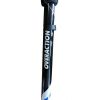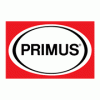Climbing Technology Cric
Multifunctional rope clamp with integrated pulley for rescue and rope access work. Robust, practical and intuitive, it has four different modes of operation: ascender, pulley, rope clamp/pulley or progress-capture hauling pulley.
Main features:
- its versatility, compact size and ease of use allow reducing to the minimum time, material and space needed in rope manoeuvres;
- it allows ascending the rope in accordance with EN 567 / EN 12841-B standards (ascender mode);
- it can be used as a simple pulley for lifting or transferring a load in accordance with the EN 12278 standard (pulley mode);
- the integrated ball-bearing sheave can be used as a simple redirect to make it easier to ascend a rope or to lift a person without the aid of additional connectors (rope clamp/pulley mode);
- it allows the direct lifting of a load, the creation of hauling systems and the rescue or self-rescue of a person (progress-capture hauling pulley mode);
- when used in pulley mode, the rope is free to run in both directions; instead, when the hauling-pulley mode is used, the rope can only run in one direction and it is locked in the opposite one;
- when used in progress-capture hauling pulley mode, it is possible to lower the lifted load by acting on the dedicated cord connected to the cam within the device;
- the easy opening, via an intuitive release button, makes the installation of the device on the rope swift – no matter the mode that is going to be used in – even with gloves on or while operating in difficult conditions;
- equipped with a steel cam featuring teeth that minimize rope wear but are effective in blocking the rope. In addition, the cam is designed with two slots to reduce the build-up of dirt, so maintaining the lock on the rope very efficient in any condition (muddy, frozen rope, etc.).
Caution! This equipment is not a fall arrester (EN 353-2 / EN 12841-A) nor can it be used for self-belaying while climbing.
TECHNICAL FEATURES
150

STANDARD AND ADDITIONAL INFORMATION




TABLES
| Standards | Rope |
|---|---|
| EN 567:2013 | EN 1891 – EN 564 – EN 892 Ø 8 ÷ 12 mm |
| EN 12841:2006-B | EN 1891-A Ø 10 ÷ 12 mm |
| EN 12278:2007 | EN 1891 – EN 564 – EN 892 Ø ≤ 11 mm |
































































































































































































